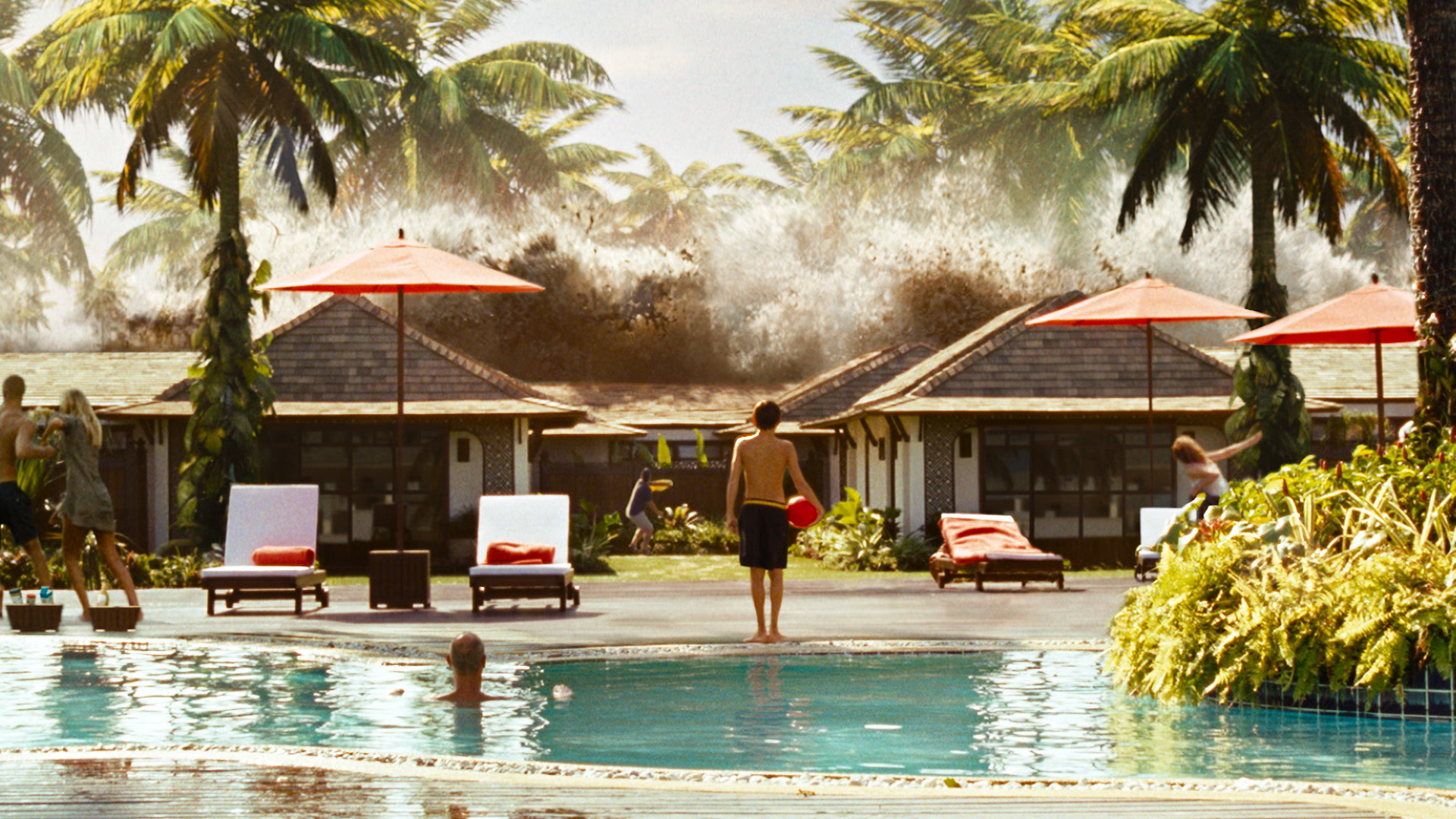By Laurie Coker
Rating: A
Ah, the randomness of nature, it never ceases to amaze and stupefy even experts. When in Japan a few years back, my cohort of twenty teachers on a seminar there had to be evacuated from Okinawa early because of an oncoming monsoon. As disappointed as I felt, having to miss the public bath experience (whew!) and the pod hotel stay, I also experienced great relief, knowing we would weather the storm in a much more secure local, and thankfully damage proved minimal compared to other such events. Even as I watched and listen to the storm rage outside my window, I wondered about the city below and people not as lucky as I to be holed away dry and sound. The Impossible starring Naomi Watts and Ewan McGregor follows the true story of a British family vacationing in Thailand when a massive wave engulfed miles and miles of beach and inland terrain, killing thousands and destroying everything in its wake – an unimaginable living nightmare.
After arriving in Thailand, Maria (Watts), Henry (McGregor) and their three sons head to the pool, she lounging and reading poolside, while he and the boys play in the pool, when suddenly they come face to face with a cataclysmic wall of water and but a moment to react. In seconds, they and the audience are taken on an unthinkable journey separating the family, but remarkably putting one son with his mother and the other two with their father. But forces of nature, injury and necessity push them apart, only to miraculously bring them all together again.
Going beyond typical Hollywood disaster movies, The Impossible takes an extremely personal approach by focusing on just one family (with a few exceptions). We sit remarkably close watching an incredible sequence so genuine and immense in scope one can only marvel at how filmmakers, guided by Spanish director Juan Antonio Bayona, accomplished such phenomenal images short of creating another tsunami. We ride along awestruck with Maria and her eldest son, Lucas (newcomer Thomas Holland) as they are swept away by the wave – offering breathtaking (for characters and the audience) underwater shots and cringe-worthy action sequences that leave Maria badly injured lying in a storm-ravaged, overcrowded hospital, where Lucas, only twelve or thirteen, faces his mother’s mortality and the possibility of losing his entire family and Henry and the younger boys nowhere to be found. Then as the water recedes, the survivors attempt to find their way amid total devastation and more shocking images fill the screen. Here we follow two stories – Henry and the boys’ and Maria and Lucas ’ and they and thousands around them seek out each other and work to survive.
Watts’ performance deserves recognition, but then so does Holland’s – he covers a range of emotion worthy of note. McGregor, too, delivers a moving portrayal of a man who faces decision no husband or father should. At one point he trusts his two younger children to strangers to search for his wife and older boy, a decision I would never want to make and one I am not certain I could. Still, while the stars shine here the cinematography and direction deserve the biggest praise. Bayona takes his audience on a gut wrenching, awe-inspiring and heartbreaking journey – one that a several points hand me cringing and wanting to cover my eyes. I should note here too that my grandson tried to watch with me, but opted to leave – he, at age eight – found it too realistic and unsettling.
The Impossible, because of screenwriter Sergio G. Sánchez’ masterful telling and the fact it actually happened, gives us a moving look at the monumental, unyielding power of nature, the equally relentless might of the human character and perhaps more importantly, the strength of HOPE in the face of even the most hopeless situations. We could question why it is a film based on vacationers in Thailand rather than a local family, but Bayona, his cast and crew draw us in, on an extremely personal level, to one of the worst disasters ever recorded in human history and drag us like ragdolls though a whirlpool of stunning imagery and intense emotions. Few on Earth didn’t see television images of the aftermath of this event.
Heeding the PG-13 rating is smart here. Realism is in abundance in The Impossible. Still, Bayona’s film impresses in many ways. From me, it earns an A. As I am writing this review, I wonder if it shouldn’t sit higher on my Top 10 list and whether or not Bayona should receive a best director nod.
